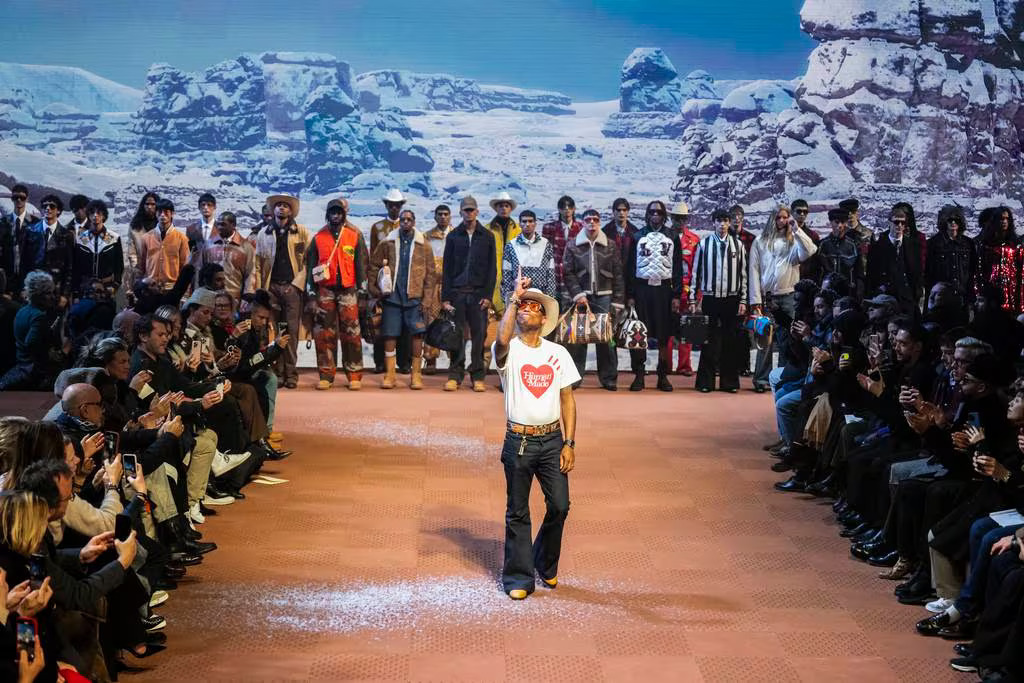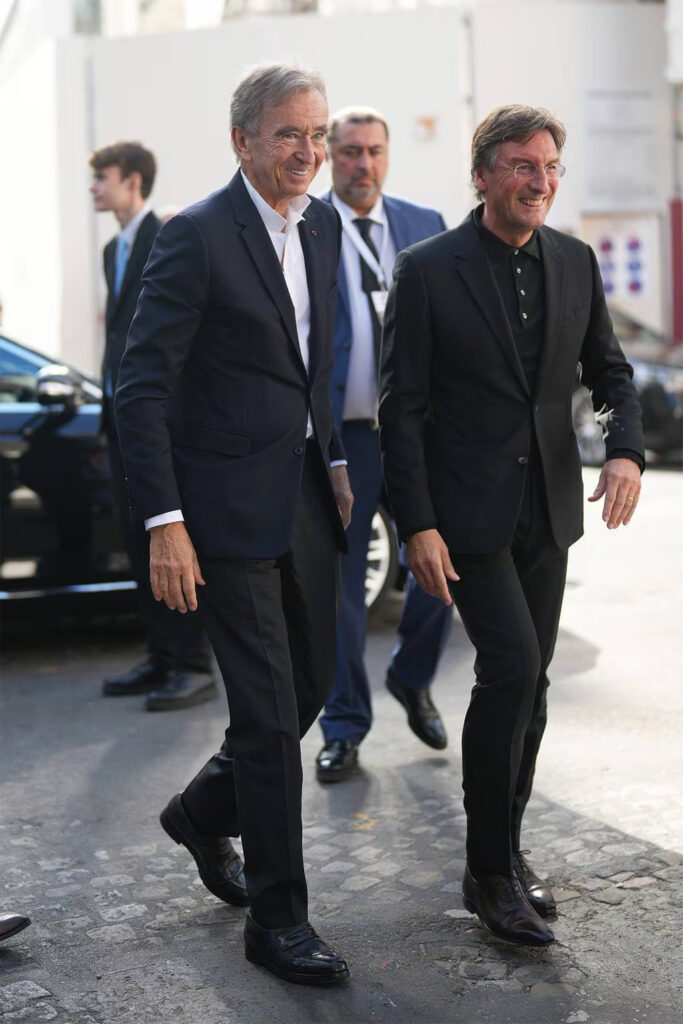PARIS – Does the absence of negative news imply positive developments? During LVMH’s annual results presentation on Thursday, analysts and investors expressed relief as the luxury industry’s foremost player conveyed cautious optimism regarding the duration and severity of the current slowdown.
Chairman Bernard Arnault voiced his anticipation for improved macroeconomic conditions in the luxury sector, notwithstanding the escalating risk of a broader conflict in the Middle East.
“I anticipate that the economy will mostly move in a positive direction for our products,” he stated. “I’m relatively confident a solution will be found [in the Middle East], but we do have to be prepared if the situation should deteriorate.”
LVMH reported sales that surpassed estimates, increasing by 10 percent on an organic basis in the fourth quarter. Analysts had forecasted an 8 percent growth according to an average estimate compiled by Bloomberg. Full-year sales exceeded €86 billion ($93 billion).
The French group’s selective retailing unit experienced the fastest growth, with sales rising by 21 percent as businesses like Sephora, Hong Kong-based tax-free shopping giant DFS, and Belmond Hotels benefited from the easing of Covid-era travel restrictions. Fashion and leather goods, the company’s largest and most profitable division, which includes mega-brands like Louis Vuitton and Dior, as well as fast-growing houses like Celine and Loewe, reported a 9 percent increase in sales, consistent with the previous quarter.
The news that LVMH’s fashion brands had maintained a stable pace of growth during the crucial holiday season, rather than experiencing a feared further slowdown, is likely to be well-received by investors. According to RBC Capital Markets analyst Piral Dadhania in a note to clients, the results “demonstrate LVMH’s defensiveness on revenues and margins… with the diversified business model once again delivering consistent and stable earnings growth despite moderating trends.”
Following a post-pandemic surge, growth sharply decelerated for the luxury sector in 2023, with many brands entering negative territory in the second half of the year. While Cartier- and Van Cleef-owner Richemont reported strong growth during the holiday quarter, as did top-end clothier Brunello Cucinelli, weaker brands didn’t fare as well. Burberry reported a 4 percent drop in same-store sales last quarter. Thursday, Ferragamo said full-year sales had fallen by more than 8 percent at constant currency compared to 2022.
At LVMH, full-year operating profit grew by 8 percent to €22.8 billion euros ($24.7 billion).
Arnault acknowledged Louis Vuitton’s new CEO Pietro Beccari and menswear creative Pharrell for the brand’s strong performance in their first year, as well as womenswear designer Nicolas Ghesquìere, whose contract was recently renewed. A smiling, smartphone camera-wielding Arnault was evidently captivated at Pharrell’s star-studded menswear show last week and seems to have brushed off critiques suggesting the designs were unsophisticated.

Pharrell Williams at the Louis Vuitton Mens Autumn/Winter 2024 show. (Spotlight/Launchmetrics.com)
“It’s crucial to recall that Louis Vuitton isn’t merely a fashion enterprise. It’s a venture where we aimed to infuse fashion elements, starting in 1995,” he remarked. Pharrell’s focus on reimagining and honoring historical products alongside introducing highly wearable new designs has evidently resonated with Arnault.
For other rapidly growing brands like Loro Piana — a significant beneficiary of last year’s trend towards logo-free luxury — and Christian Dior Couture, where sales have more than tripled in five years, Arnault mentioned that the group is anticipating slower growth, around 8 to 10 percent per year.
“The objective isn’t to pursue growth at any cost. I prefer to ease off the accelerator now rather than risk overextending ourselves,” he commented.
LVMH stated it does not intend to implement significant price increases this year.
Amid economic uncertainties and retail pessimism in the US during an election year, analysts view the resurgence in sales to Chinese clientele as the most probable source of upside for the luxury sector. While LVMH’s modest revenue outperformance might not be deemed remarkable by the markets, investors might welcome indications of steady enhancement in the company’s Chinese business.
Sales to Chinese customers, both domestically and internationally, are steadily rebounding as the company compares to last year’s stringent coronavirus lockdowns and as tourism gradually resumes.
Although package tours haven’t fully returned, sales to Chinese consumers in Europe have rebounded to about 70 percent of 2019 levels, the company reported. With the relaxation of travel restrictions last year, the number of affluent Chinese travelers opting for independent travel surged.
“We’re not too far from 2019 levels with the Chinese at certain brands like Vuitton in Europe. However, they’re not the same clientele, originating from different regions and purchasing different items,” chief financial officer Jean-Jacques Guiony remarked. “We don’t anticipate the return of tour groups immediately, but we continue to engage in significant activity with the Chinese in Europe.”
In Mainland China, the group aims to drive growth through a more rapid pace of store openings.
“The sales per square meter are exceptionally high; we’re operating at the pinnacle of our capacity while still ensuring a satisfying experience for our clients,” Arnault stated. “Similar to the rest of the world, we’re prioritizing the acquisition of truly exceptional locations.”
LVMH announced on Thursday that two more of Arnault’s five children, watch executive Frédéric and Tiffany & Co. executive Alexandre, would join the company’s board, alongside older siblings Delphine and Antoine (who head Dior Couture and LVMH’s group communications, respectively). Former AXA CEO Henri de Castries is also slated to join the board.
During a meeting with analysts and the press, however, the 74-year-old chairman and CEO asserted that he has no intentions to retire, “neither in the short nor the long term.”
Arnault also rebutted suggestions that the group would ever consider splitting its various units. “Under no circumstances would we contemplate any form of spin-off; that would be a misstep. The group thrives on the diversity of its brands,” he affirmed.

